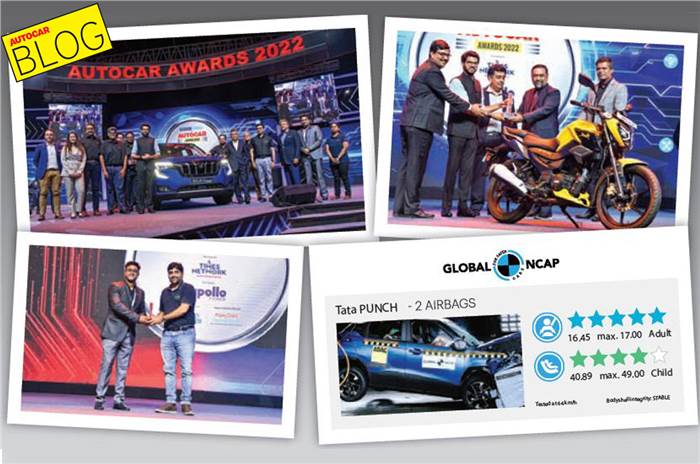“From building licensed products to joint ventures, to designing and building our own products and to exporting them across the world, this is the story of the Indian automotive industry.” That was Venu Srinivasan, TVS Motor Co chairman, accepting the Person of the Year award at the 2022 Autocar India Awards.
Srinivasan went on to say he was fortunate to have seen this transformation in his lifetime. But, amazingly, it took place over just his working career. That got me thinking, how did we achieve this transformation?
In a word, ‘liberalisation’. Until then, the Indian auto industry was protected and we know the landscape that ensued, same cars for decades, outdated tech, poor quality and high costs. But that changed when we had to compete with the world.
Mahindra Group chairman Anand Mahindra – also speaking at the awards – echoed this sharing an anecdote of when a consultant firm said they’d be wise to stick with tractors, reasoning Mahindra had no scale, no quality, never made a hard top car and would thus simply die in a liberalised market. Mahindra quipped he’s happy he wasn’t wise then. Indeed, competing in a liberalised market is what made our domestic automakers shine; look at the likes of Mahindra, Tata, TVS and Bajaj.
Of late though, the brouhaha over nationalism seems to be hijacking business common sense. How much protection is too much? Recently, we implemented a blanket ban on imported drones. Reason? We need to develop our domestic drone makers. But as history has repeatedly shown, protectionism does not spur development.
Yes, the ban is also because most drones are Chinese. But our ambitious EV race needs us to develop battery tech overnight. And the battery development leaders – yes, development, not just manufacturing – are the Chinese. We’ll invariably have to invite them in, in some manner or the other. In any case, they’re already here; look under the skin of any ‘made-in-India’ EVs. Look at the mega future battery plans too that Indian OEMs have. The common ingredient, China.
Then there’s Tesla who we are keeping out because they won’t make cars here. Is that the best reaction? We really need to figure out just how much protectionism is too much. It’s a delicate tight rope, but one that we certainly can walk. As I said in a past column, if we want a truly global auto industry, beyond self-reliant cars, what we’ll need is world class ones. And so, as history and the industry says, opening up and competing with the world is the only way to achieve this.




Comments
Member Login
Personal Details
No comments yet. Be the first to comment.